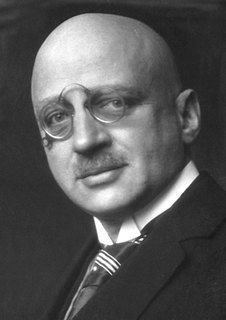A Quote by Edgar Mitchell
There are types of energy which lie outside the electromagnetic spectrum. Unfortunately, these research efforts have not been given recognition. For the most part, they have been performed by individuals without any support, whose work lies at the threshold of present-day science, and who are years ahead of science which is already established.
Related Quotes
I argue that science would be much richer if it were multisensory. The problem with instrumentation is that instruments, unlike our senses, can be monosensory. Since the discovery of the electromagnetic spectrum - which is really the discovery that all energy coming from something has a wave form - in theory we could image anything along that spectrum. In fact, we don't, because only certain parts of the spectrum have been instrumentalized. But the new thing is computerization. You can take all the data, the measurement of the frequencies, and transform it into an image.
The field of scientific abstraction encompasses independent kingdoms of ideas and of experiments and within these, rulers whose fame outlasts the centuries. But they are not the only kings in science. He also is a king who guides the spirit of his contemporaries by knowledge and creative work, by teaching and research in the field of applied science, and who conquers for science provinces which have only been raided by craftsmen.
This example illustrates the differences in the effects which may be produced by research in pure or applied science. A research on the lines of applied science would doubtless have led to improvement and development of the older methods - the research in pure science has given us an entirely new and much more powerful method. In fact, research in applied science leads to reforms, research in pure science leads to revolutions, and revolutions, whether political or industrial, are exceedingly profitable things if you are on the winning side.
But the idea of science and systematic knowledge is wanting to our whole instruction alike, and not only to that of our business class ... In nothing do England and the Continent at the present moment more strikingly differ than in the prominence which is now given to the idea of science there, and the neglect in which this idea still lies here; a neglect so great that we hardly even know the use of the word science in its strict sense, and only employ it in a secondary and incorrect sense.
Industrial Society is not merely one containing 'industry,' large-scale productive units capable of supplying man's material needs in a way which can eliminate poverty: it is also a society in which knowledge plays a part wholly different from that which it played in earlier social forms, and which indeed possesses a quite different type of knowledge. Modern science is inconceivable outside an industrial society: but modern industrial society is equally inconceivable without modern science. Roughly, science is the mode of cognition of industrial society, and industry is the ecology of science.
The life and soul of science is its practical application, and just as the great advances in mathematics have been made through the desire of discovering the solution of problems which were of a highly practical kind in mathematical science, so in physical science many of the greatest advances that have been made from the beginning of the world to the present time have been made in the earnest desire to turn the knowledge of the properties of matter to some purpose useful to mankind.
So far I have been speaking of theoretical science, which is an attempt to understand the world. Practical science, which is an attempt to change the world, has been important from the first, and has continually increased in importance, until it has almost ousted theoretical science from men's thoughts.
Science is intimately integrated with the whole social structure and cultural tradition. They mutually support one other-only in certain types of society can science flourish, and conversely without a continuous and healthy development and application of science such a society cannot function properly.
In any economy, the entire population is supported by the part of it that is working. All other things being equal, it thus follows that the most attractive acquisition a society can have is a young adult, whose childhood and education has already been paid for, but whose entire working life still lies ahead.
It is for Muslim scholars to study the whole history of Islamic science completely and not only the chapters and periods which influenced Western science. It is also for Muslim scholars to present the tradition of Islamic science from the point of view of Islam itself and not from the point of view of the scientism, rationalism and positivism which have dominated the history of science in the West since the establishment of the discipline in the early part of the 20th century in Europe and America.

































